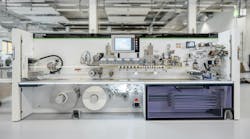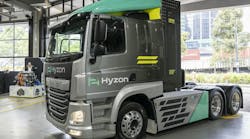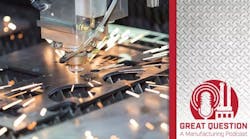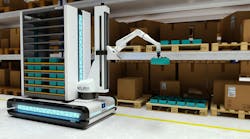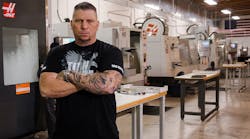Before I began my life as an editor, I helped develop a pre-college program for future engineers out in Albuquerque, N.M. By design, the program targeted particularly crazy-smart students coming from what was termed "nontraditional college-bound backgrounds"—government-speak for kids from low income households who were to be the first in their families to go to college.
The kids, it must be said, were (and are) some of the best people I've ever encountered. Most of them had grown up in these rough environments that didn't exactly encourage education, let alone the kinds of fancy science and engineering degrees they were after. And yet they signed up, they gave me two hours a week for tutoring, gave me one weekend a month for test prep, and six entire weeks of their summer vacations to take extra classes for no credit whatsoever.
For these kids, the dream of success, of progress, of something greater seemed to propel them forward harder than any high schooler's willpower should be able. They were kids, sure, but they were determined.
And that determination, I think, stemmed from their response to that first word in their program description: "nontraditional."
Tradition told them that they'd never leave Albuquerque. It told them they would never go to college, never learn the skills they needed, never build the future they wanted. Tradition told them that their dreams didn't matter. Well, they said, to hell with tradition.
Following that decision, they all seemed to find themselves in what I've come to think of as a pure innovative state. By turning their backs on tradition, each of them faced a completely unwritten future—they were free to design exactly the life they wanted in exactly the way they wanted to. There were no rules, no guidelines, no expectations but their own. Absolute freedom.
Reactions to this kind of freedom usually goes one of two ways: one can freak out and bury oneself back into the known (as most of us do), or one can charge bravely ahead and rebuild the world on their own terms. My kids all took that latter route, as did, I'd say, most of the great innovators throughout history. It's a treacherous path, but it can lead to amazing things.
Titan Gilroy, as described in John Hitch's story, "Modern Machining & the Need for Speed," seems to have made this same choice.
It's a story I love, the same story that played out in Albuquerque: Tradition says that machining has to be handled a certain way, that quality requires slow speeds and highly-trained engineers to achieve. Well, Gilroy said, to hell with tradition.
And it's this, not his bravado, not his background, not his celebrity, that makes his work so powerful. Gilroy is changing the machining world—and by extension, American manufacturing—by standing up to its basic precepts, by challenging traditional understandings, and by bravely facing the unknown.
As a result, he is able to out-machine traditionally-minded shops at an absolutely preposterous pace. And as a result of that, the industry has found itself a new mentor, a new leader, and a new tradition to explore.
